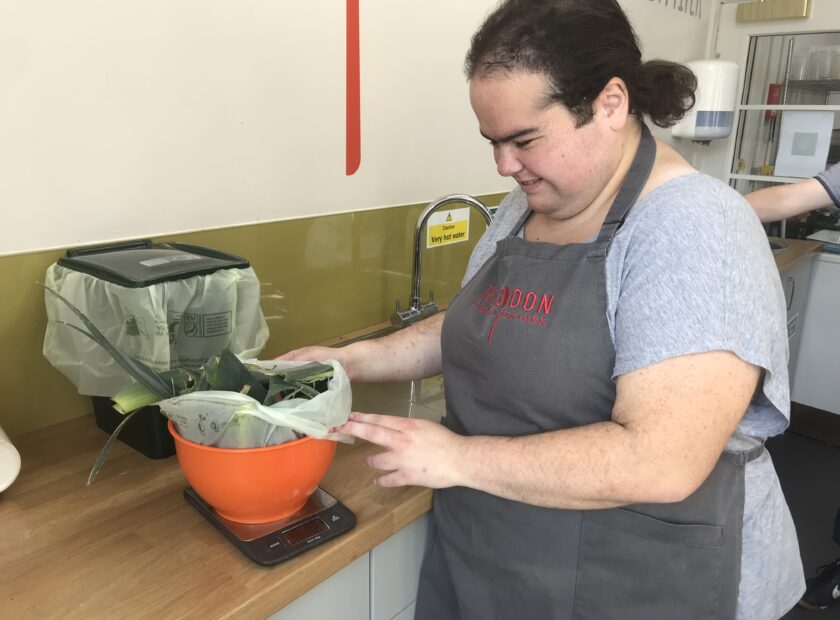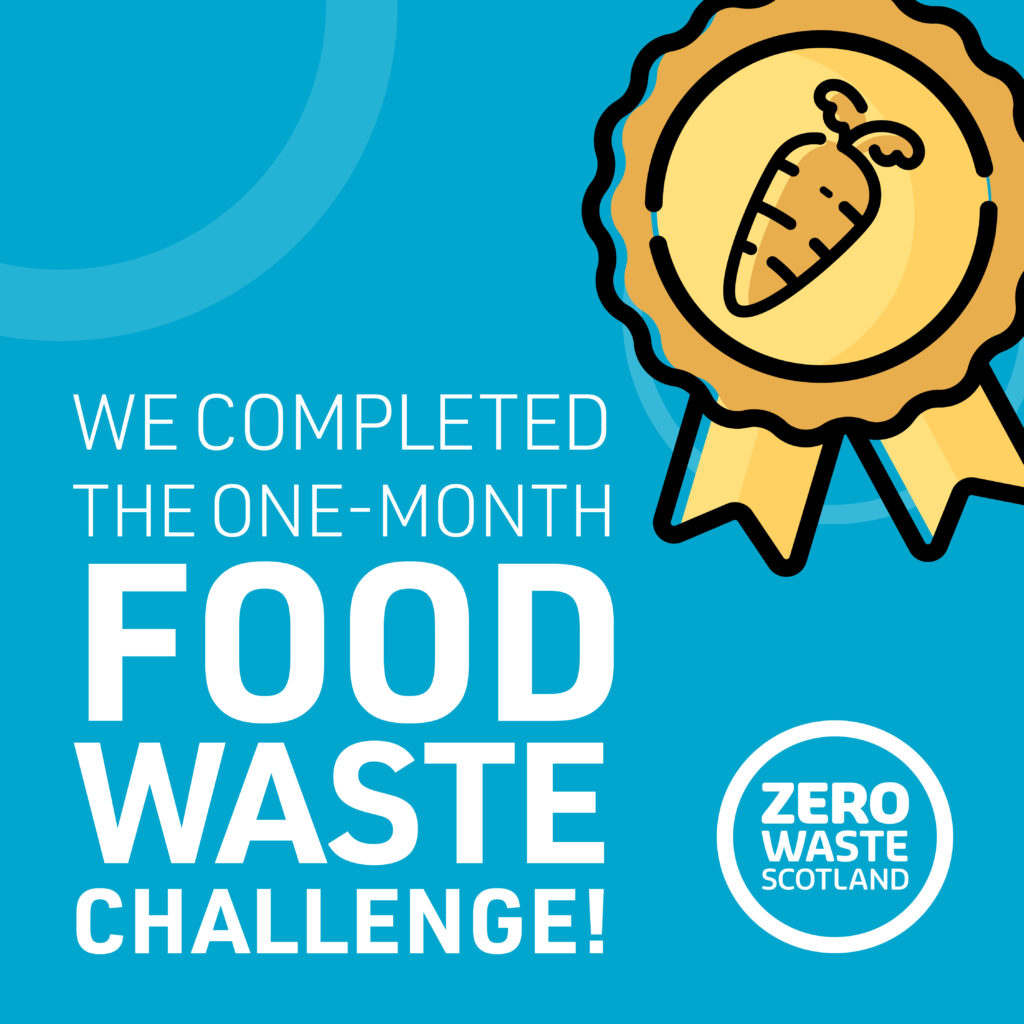Reducing food waste in our Community Food Programme

Development Worker Jackie Arreaza explains how taking part in Zero Waste Scotland’s Food Waste Challenge has helped reduce waste within our Community Food Programme.
Food waste is a huge problem in Scotland. Nationally, we throw out enough food each year to make 800 million meals costing £1 billion per year.
This waste isn’t great for the planet if we consider all the resources that go into producing, transporting, storing and cooking food. It’s even worse for the environment if food waste goes into landfill as it produces methane, one of the greenhouse gases which is fuelling the climate emergency.
Here at Greener Kirkcaldy, all of our food waste is recycled through Fife Council’s composting scheme but we are always keen to reduce our impact further. That’s why the community food team at accepted Zero Waste Scotland’s one-month Food Waste Challenge!
During August, we measured our food waste after every activity, analysed the findings and then came up with an action plan to cut waste.
Staff and volunteers got together at the beginning of the month to come up with a system to weigh our food waste. We looked at what was left after every cooking class (both with adults and kids!), every preparation session for our Community Meals and our pop-up café, the plate waste after meals and café and every pantry session. We also weighed any spoiled food that comes to us with donations to the Community Fridge, as well as the food waste created by our staff team during their lunch breaks.
We met again halfway through the month to look at the findings and once more at the end to come up with some solutions to reduce our food waste. To help with this exercise we used a handy tool for businesses and organisations on the Zero Waste Scotland website.
We found that we produce an average of 12kg of food waste per week, half of which came from preparing meals. Two and a half kilos of waste was spoiled food within donations from businesses, and three and a half kilos was plate waste.
This exercise helped us to separate out the kinds of food waste we have, such as preparation, spoilage and plate waste, as well as understand what waste is unavoidable or avoidable.. Once we looked at the data in each category, we could start to see patterns and think more carefully about what we are throwing away and why.

Another benefit of taking part was that staff, volunteers, participants in classes and members of the public who come to our community meals and café started to think twice when putting food in the caddy, knowing that we were measuring it! It has also started conversations about why food isn’t eaten, how waste could be avoided, and what could be done with specific waste items that are unavoidable, such as skins and peel, coffee grounds and egg-shells.
Some of the actions we’ve decided to take include educating people who hire our event space and kitchens about food waste, offering tasters and smaller portions at community meals as well as a doggy bag. We’ll also work on training volunteers and calculating our portions better!
In addition, the challenge has been useful to start thinking about some creative ideas to deal with the food items that we would normally throw out. For example, could we offer sprouting potatoes to gardeners, or make stock with vegetable peelings on a regular basis?
Overall, taking part in the Food Waste Challenge and weighing our waste has made us much more aware of food waste and how we can work to reduce it.
Jackie Arreaza, Development Worker
Producing less waste as an organisation is an important part of Greener Kirkcaldy’s Climate Action Plan. Read the full plan for more information on how we are reducing our impact.
|